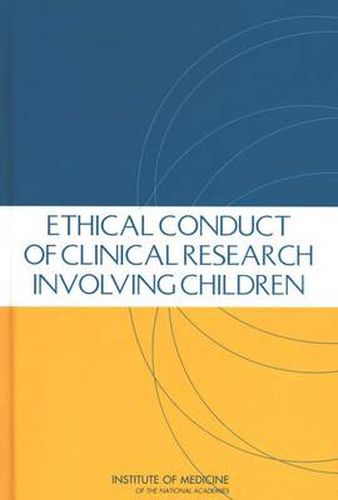Readings Newsletter
Become a Readings Member to make your shopping experience even easier.
Sign in or sign up for free!
You’re not far away from qualifying for FREE standard shipping within Australia
You’ve qualified for FREE standard shipping within Australia
The cart is loading…






In recent decades, advances in biomedical research have helped save or lengthen the lives of children around the world. With improved therapies, child and adolescent mortality rates have decreased significantly in the last half century. Despite these advances, pediatricians and others argue that children have not shared equally with adults in biomedical advances. Even though we want children to benefit from the dramatic and accelerating rate of progress in medical care that has been fueled by scientific research, we do not want to place children at risk of being harmed by participating in clinical studies. Ethical Conduct of Clinical Research Involving Children considers the necessities and challenges of this type of research and reviews the ethical and legal standards for conducting it. It also considers problems with the interpretation and application of these standards and conduct, concluding that while children should not be excluded from potentially beneficial clinical studies, some research that is ethically permissible for adults is not acceptable for children, who usually do not have the legal capacity or maturity to make informed decisions about research participation. The book looks at the need for appropriate pediatric expertise at all stages of the design, review, and conduct of a research project to effectively implement policies to protect children. It argues persuasively that a robust system for protecting human research participants in general is a necessary foundation for protecting child research participants in particular.
$9.00 standard shipping within Australia
FREE standard shipping within Australia for orders over $100.00
Express & International shipping calculated at checkout
In recent decades, advances in biomedical research have helped save or lengthen the lives of children around the world. With improved therapies, child and adolescent mortality rates have decreased significantly in the last half century. Despite these advances, pediatricians and others argue that children have not shared equally with adults in biomedical advances. Even though we want children to benefit from the dramatic and accelerating rate of progress in medical care that has been fueled by scientific research, we do not want to place children at risk of being harmed by participating in clinical studies. Ethical Conduct of Clinical Research Involving Children considers the necessities and challenges of this type of research and reviews the ethical and legal standards for conducting it. It also considers problems with the interpretation and application of these standards and conduct, concluding that while children should not be excluded from potentially beneficial clinical studies, some research that is ethically permissible for adults is not acceptable for children, who usually do not have the legal capacity or maturity to make informed decisions about research participation. The book looks at the need for appropriate pediatric expertise at all stages of the design, review, and conduct of a research project to effectively implement policies to protect children. It argues persuasively that a robust system for protecting human research participants in general is a necessary foundation for protecting child research participants in particular.